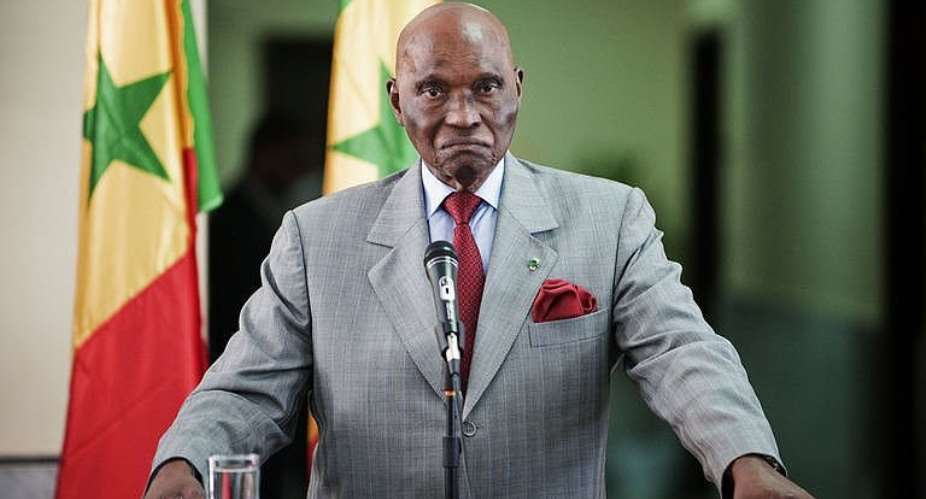DAKAR (AFP) - Hundreds of thousands turned out in support of Senegal's President Abdoulaye Wade on Saturday, in a massive show of force by the 85-year-old leader who is seeking a controversial third term in office.
The ruling party rally dwarfed an opposition protest held earlier in the day to demand Wade drop his plans to contest February 2012 elections, which his critics say is unconstitutional.
Hundreds of thousands of people swarmed the boulevard in front of the ruling party's headquarters in Dakar, an AFP journalist said, and hundreds of buses were parked nearby, having brought supporters all over the country.
Senegal's Information Minister Moustafa Guirassy said between 1.8 and two million people were at the ruling Senegalese Democratic Party (PDS) rally.
"I came to support Wade who achieved in 10 years that which no president before him did," said Dieynaba Sidibe from Tambacounda in the south-east.
This massive show of force by the ruling party comes a few hours after an opposition rally where between 10,000 and 50,000, depending on sources, turned out to demand Wade ditch his plans to run for a third term in office.
Guirassy protested these figures in an email to AFP, saying the opposition march had attracted between 2,500 and 3,000 people.
"No to a third term for Wade", "Wade go, Wade out" read placards brandished by protesters, who had to move their rally to the suburbs after political gatherings were banned in downtown Dakar earlier this week.
"Wade said (in 2007) he wasn't going to run again, he must respect his word. All Senegal's problems come from him," said one protester, Alpha Ciss.
While the president has acknowledged he did say this, he has since said he has the right to change his mind.
Major opposition leaders such as Ousmane Tanor Dieng of the Socialist Party (PS), civil society figures and former Wade allies such as ex-prime minister Idrissa Seck, addressed the crowd.
"This mobilisation shows the determination of the Senegalese people to put an end to Wade's regime. They have been heard. Abdoulaye Wade cannot be a candidate, Abdoulaye Wade will not be a candidate," said Abdoulaye Bathily of the Democratic League.
The protests come one month to the day after riots broke out as parliament examined proposed changes to election laws.
The changes were later shelved because of the pressure from the street and harsh criticism from abroad.
But more than 100 were injured as riot police fired tear gas and water cannons to disperse thousands of protesters, some hurling stones, in the biggest demonstrations since Wade came to power in 2000.
The proposed changes would have added a vice president to the presidential ticket and dropped the winning threshold for a first-round victory to 25 percent of the votes from the current 50 percent.
Wade's critics believe he is trying to smooth the way for his 42-year-old son Karim to succeed him without having to run for office himself. Karim Wade is considered too unpopular to win on his own ticket.
The president has dismissed the claim.
More unrest broke out days later, with government buildings torched in a spontaneous protest against crippling power cuts, which can last for days.
Wade was pilloried by his critics for being out of touch with the people when he delivered an address to the nation on July 14 in which he was adamant he would seek and win a third term in office.
The national debate has heightened tension in the west African country, a bastion of stability in a troubled region which has always known a peaceful transfer of power and never undergone a coup d'etat.
Senegal's first president after independence from France in 1960, Leopold Senghor, resigned after two decades in office in favour of his prime minister Abdou Diouf in 1981, who accepted defeat when trumped by Wade.
Wade was first elected for a seven-year term in 2000 and again in 2007 for a five-year mandate after a constitutional change shortened the presidential term. According to the constitution, the president can only serve two terms.
However Wade's supporters say this provision only came into play after the change in the law -- which would mean he is entitled to seek another term in office.
Wade's camp says the final decision rests with the constitutional council.
© 2011 AFP





 We’re disappointed over gov’t’s lacklustre attitude to negotiations of our condi...
We’re disappointed over gov’t’s lacklustre attitude to negotiations of our condi...
 No more Buffer Stock as Mahama promises to decentralise SHS food supply
No more Buffer Stock as Mahama promises to decentralise SHS food supply
 NSS urges President Akufo-Addo to sign National Service Bill into law
NSS urges President Akufo-Addo to sign National Service Bill into law
 You're lying, your 7-11pm dumsor attributed to overloaded transformers is false ...
You're lying, your 7-11pm dumsor attributed to overloaded transformers is false ...
 Consult Council of State on anti-gay bill – Mahama advises Akufo-Addo
Consult Council of State on anti-gay bill – Mahama advises Akufo-Addo
 Transport Ministry has no power to determine fares – COPEC
Transport Ministry has no power to determine fares – COPEC
 Brace yourselves for more economic hardship – Prof Adei to Ghanaians
Brace yourselves for more economic hardship – Prof Adei to Ghanaians
 Any government depending on IMF is likely to fail – Grand Coalition
Any government depending on IMF is likely to fail – Grand Coalition
 Ghana risks losing premium cocoa position due to galamsey – COCOBOD laments
Ghana risks losing premium cocoa position due to galamsey – COCOBOD laments
 Akufo-Addo launches NSS policy document to tackle under-utilisation of service p...
Akufo-Addo launches NSS policy document to tackle under-utilisation of service p...
